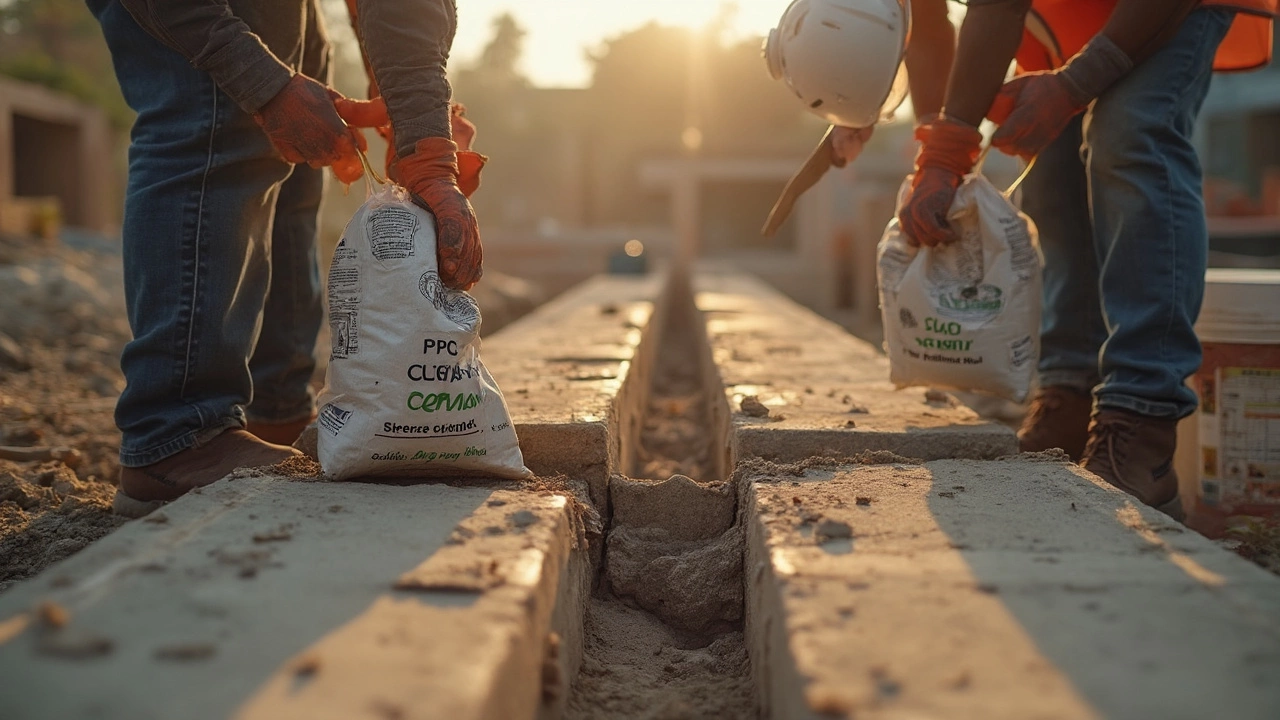Best Cement for Foundation Repair: What Works and What to Avoid
When your foundation starts cracking or shifting, the best cement for foundation repair, a specialized type of concrete formulated to bond with existing masonry and resist water intrusion. Also known as structural repair mortar, it’s not just about strength—it’s about compatibility, flexibility, and long-term durability. Using the wrong product can make cracks worse, cause new ones, or even lead to water damage inside your walls. Most homeowners don’t realize that standard Portland cement, often sold at hardware stores, is too rigid and brittle for foundation work. It doesn’t move with the structure, so it cracks again within months.
What you really need is a polymer-modified cement, a hybrid material that combines traditional cement with synthetic polymers to improve adhesion and reduce shrinkage. This is the same stuff pros use to patch basement walls, stabilize settling slabs, and seal large cracks in garages and porches. It sticks better, flexes slightly with temperature changes, and resists moisture far longer than regular concrete. Another key player is epoxy-based repair compounds, high-strength adhesives used for deep structural cracks that need to bear heavy loads. These aren’t for surface fixes—they’re for when the foundation itself is under stress. Then there’s hydraulic cement, a fast-setting material that hardens even underwater, perfect for leaks and wet basements. It’s not a cure-all, but when water is the enemy, nothing else works as fast. Each of these has its place. Polymer-modified cement for general cracks, epoxy for structural issues, hydraulic for active leaks. Mixing them up or using the wrong one is a common mistake that leads to repeat repairs.
You’ll also find that the best cement for foundation repair isn’t just about the mix—it’s about preparation. Surface cleaning, moisture control, and proper injection techniques matter just as much as the product. That’s why many of the posts below dive into DIY methods, contractor tips, and real-world cost breakdowns. Some homeowners try to save money with cheap bags from big-box stores, only to end up paying twice as much later. Others hire pros who use the right materials but skip the prep work. Both approaches fail. The real winners are the ones who match the material to the problem, prep the surface right, and understand when to call in help.
Below, you’ll find guides that break down exactly which products professionals trust, how to identify if your crack needs epoxy or polymer cement, what to look for on the bag labels, and how to avoid the traps that turn a simple fix into a major headache. Whether you’re dealing with a hairline crack or a full foundation shift, the right material makes all the difference.
Best Cement for Foundation Repair: Expert Guide and Tips
Discover which cement is best for foundation repair. Learn about concrete types, their pros and cons, application tips, and common repair mistakes.
Learn more...